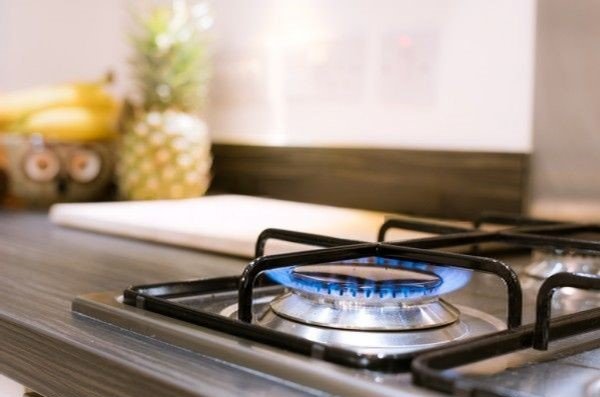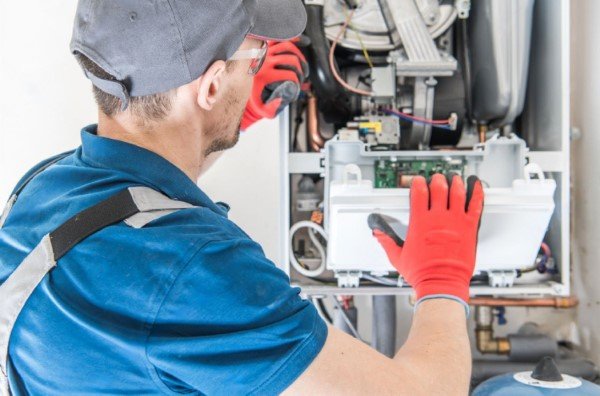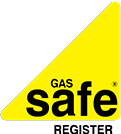Domestic Gas Safety Check Cost
Our prices for carrying out Landlord Gas safety certificate are as follows:
How long does it take?
Normally, landlord gas safety certificate takes 30-45 minutes, and it depends how many appliances you have and how easy it is for the engineer to get access.
What is a Domestic Gas Safety Certificate?
A gas safety certificate also known as CP12 Certificate is a legal requirement for landlords in the UK.
A gas safety certificate provides assurance that a qualified Gas Engineer has thoroughly examined your property for gas leaks and potential hazards. This assessment encompasses all gas-supplied appliances, including boilers, cookers, fireplaces, and more. While it may seem like a comprehensive process, it serves the vital purpose of identifying and addressing any issues before they escalate into serious or life-threatening problems. Obtaining a gas safety certificate also grants you peace of mind, knowing that a skilled expert has meticulously assessed your property.
As well as being legally required.
A Gas Safe engineer is a certified professional responsible for ensuring that your residential or workplace complies with all the necessary legislation and regulations to minimize risks to occupants. They provide guidance on safeguarding you, your family, and your employees from potential gas leaks during emergencies. While accidents can occur unexpectedly, awareness of the associated safety risks enables proactive prevention, reducing the likelihood of incidents altogether.
Domestic Gas Safety Check FAQs
All landlords in UK require gas safety check when they are letting out the property. So look no where else than Pro Checks for your local gas engineer.
If you live in UK, then gas safety certificate is legally mandatory. This is because all the landlords require this when they are letting out their property
The process of getting a gas safety check done is quite simple and doesn't take more than a day to complete. The cost ranges from £45-£150 depending on how many appliances are going to be checked by the contractor for any leakage or faulty connections. This can not only save your life but also prevent damage to your property as well as other people's properties in case of an explosion due to leakages in the pipes carrying gas into the house which could lead to severe burns, permanent scarring and even death! So it makes sense that any landlord who cares about his tenants would get this done.
Many people do not realize the importance of having an annual Gas Safety Certificate until it is too late. If you are renting, your landlord must provide this certificate before you move in. It is important to get one from an approved gas installer and ensure that it covers any appliance they have installed at the property (e.g. a boiler). If your landlord does not provide this certificate, or if there are problems with the installation or fittings which were signed off during the inspection, then you could be putting yourself and your family at risk of carbon monoxide poisoning and other accidents caused by unsafe gas appliances. The consequences can be serious; for example, carbon monoxide poisoning can result in long-term neurological damage or death if left untreated but even short-term poisoning can result in headaches, dizziness and nausea.
A landlord's failure to provide a current certificate can result in fines of up to £6,000 or six months in jail. So what does it do and why is it so important?
This also applies to those private properties where the landlord has installed a new boiler or gas appliances such as a cooker. Failure to have this domestic/ landlord gas safety certificate in place can invalidate your landlord's insurance
If you are buying a property, or have recently bought one, it is important that you ensure that there is no existing damage to any pipework which may be affecting the safe working of the appliance. This could potentially mean saving yourself from potential hazards later down the line such as carbon monoxide build-up.
During a gas safety inspection, all gas appliances must be checked. This can include your boiler or hob. It is important to be aware of this and understand the significance of any checks carried out by a Gas Safe registered engineer
Gas appliances are checked for leaks and general wear and tear as part of the check-up process. If you have recently moved into a property with gas in it, it may need an inspection if there has been work done on the property or if it is over 25 years old. The regulations state that all new builds should also have an inspection before they are occupied - even if they don't have gas fitted yet!
If you think any repairs might be required at some point in the future, then-it may be worth getting it checked out now, so that you aren't caught short later.
Unfortunately, landlord certificates only cover the landlord's responsibility for gas safety. You are responsible for making sure your cooker is safe and working independently of any landlord certificate.
Note: In England, landlord gas safety certificates do not cover oil-fired systems or electric boilers/fires or other electrical items. These must be checked by an electrician on completion of works (these checks are joint responsibility between landlord & tenant).
Gas safety is an important issue, and it's important that those who carry out gas safety inspections in UK are qualified to do so. The qualifications for a person carrying out gas safety inspection in the United Kingdom can be found on the Gas Safe Register.
The qualification required depends on whether you're inspecting domestic or non-domestic premises, with different standards applying to each type of premises
You will also need to have a knowledge of legislation relating to gas installation and use as well as technical competency relevant to your inspection activity.
If you want to find the local gas safe engineer near you than look nowhere else than Pro Checks.
Gas safety is an important issue, and it's important that those who carry out gas safety inspections in UK are qualified to do so. The qualifications for a person carrying out gas safety inspection in the United Kingdom can be found on the Gas Safe Register.
The gas safety inspection in UK is a process which is done to check whether the property has been fitted with all the necessary gas related appliances. The inspectors carry out an appraisal of the property, which includes checking for any leakages or general defects in the system. They also conduct a flue test to make sure that the appliance is working efficiently. If there are any issues with the appliances then they will inform you and recommend an action plan.
You will also need to have a knowledge of legislation relating to gas installation and use as well as technical competency relevant to your inspection activity.
If you want to find the local gas safe engineer near you than look nowhere else than Pro Checks.

Domestic Gas Boiler Service
In the UK, regular boiler maintenance is crucial due to the various risks involved. For instance, winter vulnerabilities are detected during the annual gas safety check, and a cleaning routine helps prevent costly repairs or replacements resulting from negligence. A malfunctioning boiler can disrupt your energy supply and compromise your entire heating system. When boilers are not functioning correctly, they can create unnecessary stress, both mentally and financially.
Boilers that release gas or oil can pose significant health risks due to the toxic fumes they emit. Therefore, it is crucial to have these issues addressed promptly and professionally. Residents who have conditions like asthma, heart disease, or sensitivities should be particularly cautious, as they may require more frequent servicing compared to others in the same property.
The landlord of the property bears the responsibility for ensuring a safe and secure environment, including maintaining these appliances. Before entering into a tenancy agreement with any landlord, it’s essential to verify that they are insured and possess a landlord gas safety certificate. Gas Safety Certificate conducts regular boiler servicing to prevent unsafe conditions. Routine inspections are mandatory as they help identify faulty components that could potentially lead to breakdowns or malfunctions during operation.

Accredited by




